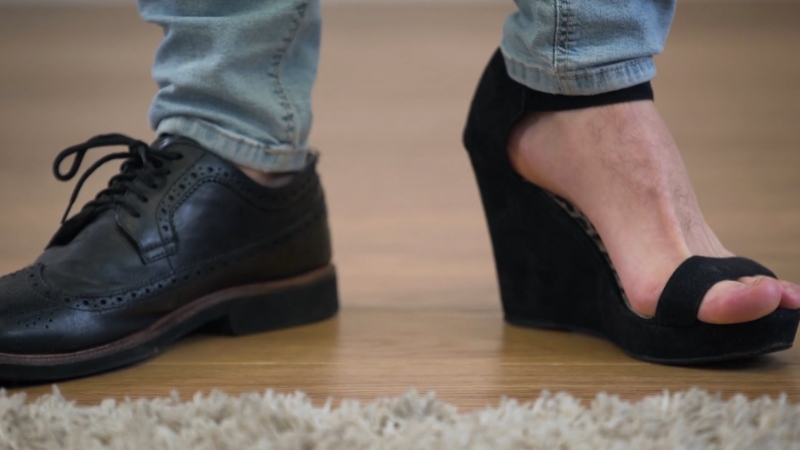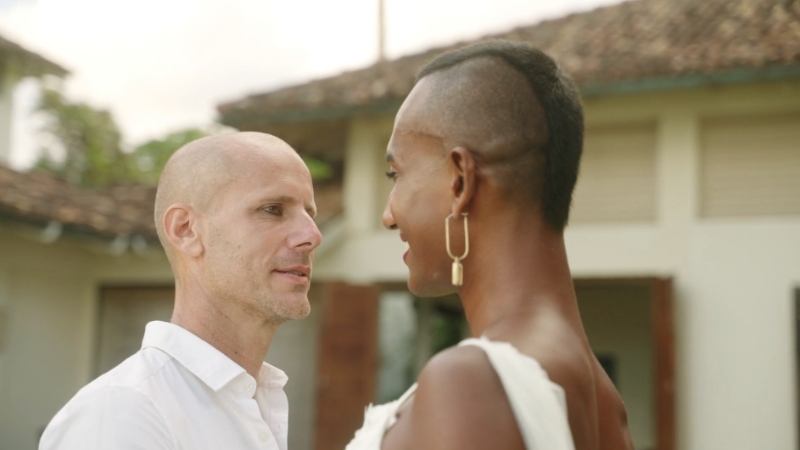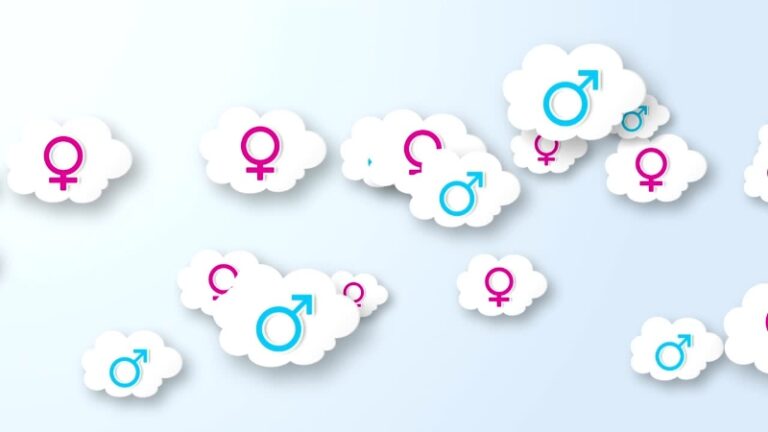Conversations around gender identity are becoming more common, which is a good thing.
But language still trips people up, especially those trying to be respectful and inclusive without knowing exactly how.
So here’s the short version: words matter. A lot. And some phrases, even when meant harmlessly or spoken out of curiosity, can land in really painful ways.
You don’t have to know everything about gender identity to speak respectfully. But you do need to know what to steer clear of, and why.
1. “So… what were you born as?”

Let’s call this what it is: a question about someone’s genitals or their past medical history, which, for starters, is not your business unless you’re their doctor.
And even then, it would need to be relevant.
When you ask this, even if you phrase it more gently (“What’s your biological sex?”), It can feel like you’re digging for proof or a “real” identity underneath the one they’ve shared.
That puts someone on the defensive. It also assumes their current identity is somehow fake, like a costume they’ve put on.
Think about it: Would you ask a cisgender woman, “Hey, are you sure you were born a girl?” Probably not. So don’t flip the rules for trans or nonbinary people. Instead, say: Nothing. Respect the identity they give you. If they want to share more of their story, they will, on their terms.
2. “But you don’t look trans.”
This one is tricky because people often think they’re being kind. What they mean is: “You fit my idea of what your gender should look like.” But here’s the thing — there’s no one way to “look” trans.
Some trans people want to blend in. Some don’t. Some people are gender nonconforming, intentionally or not. Beauty and gender presentation are personal and varied.
When you say someone “doesn’t look trans,” it might also send the message that you expect trans people to look awkward, obviously “different,” or visibly in transition. It reinforces stereotypes that are just flat-out wrong.
Even if it’s meant as a compliment, it puts pressure on someone to “pass,” which isn’t everyone’s goal, and isn’t a requirement for being valid. Better option: Skip the “you don’t look…” comment entirely. Compliment someone’s hair, their energy, their style — things that don’t tie into assumptions about their body or identity.
3. “They/them is plural, not singular. That’s just bad grammar.”
People pull this one out like they’ve got a linguistic trump card. But let’s be real: the singular “they” is everywhere. You’ve probably used it yourself without even realizing it.
Example: “Someone left their phone — I hope they come back for it.” That’s singular. That’s natural. That’s English.
So when someone says their pronouns are “they/them,” don’t make it about your high school grammar class. Language evolves.
And frankly, showing respect is more important than preserving some rule that even the Oxford English Dictionary says is fine to bend.
What to do: Practice. It can feel awkward at first if you’re not used to it; that’s normal. Say sentences to yourself in the mirror. Use their name more often until it clicks. If you mess up? Just correct yourself and move on. No big dramatic apology necessary, just effort and respect.
4. “So… have you had the surgery?”
First off, there’s no one surgery. That’s a myth.
There are many different types of gender-affirming procedures, including chest surgery, hormone therapy, bottom surgery, and facial surgery, and not everyone chooses or can access them.
Some people don’t want them at all. Others can’t afford them. Or they’re waiting. Or they’re happy as they are.
When you ask about “the surgery,” what you’re saying is reducing someone’s identity to a body part, as if their whole gender hinges on what’s under their clothes.
That’s uncomfortable. It’s dehumanizing. And it’s incredibly invasive.
Also worth noting: Trans people already get asked this a lot. By strangers. By relatives. By coworkers. It gets old fast. Rule of thumb: If it’s something you wouldn’t ask your boss or barista or neighbor, don’t ask it here either.
5. “That’s just a phase. You’ll grow out of it.”
View this post on Instagram
This phrase tends to show up when someone comes out, especially young people. There’s an assumption that gender identity is something they’re experimenting with, or rebelling through, or copying from TikTok.
But identity isn’t a fad. And even if someone does shift how they identify over time, it doesn’t mean their earlier experiences weren’t real.
People evolve. That’s not the same as being confused. And dismissing someone’s identity as a “phase” is bullying them; you don’t take them seriously.
6. “I don’t care what you think you are-you’re still [birth gender].”
This is probably one of the most hurtful things someone can hear. It completely erases a person’s identity and replaces it with your belief system.
This isn’t a difference of opinion. It’s a fundamental denial of someone’s self.
And let’s be clear, if someone tells you their name and gender, that’s not a suggestion.
That’s a boundary. It says, “I know you better than you know yourself.” It’s controlling. It’s demeaning.
Why people say it: Sometimes it’s about religion, or tradition, or discomfort. But none of those justify disrespect. Instead, even if you’re struggling internally, try: “I’m still adjusting, but I’m doing my best to honor who you are.” That goes a long way.
7. “You’re too pretty/handsome to be trans.”

The message it sends is: “You don’t match the stereotype I have in my head.” Or worse, “Trans people can’t be attractive.”
It also draws a straight line between gender and beauty standards, which are already hard enough to navigate without someone tying them to your transness.
What you’re roing (even if you don’t mean to) is reinforcing the idea that transness is inherently less desirable, and that people need to “compensate” by being exceptionally good-looking to be taken seriously. What to say instead: If you want to give a compliment, just do that. Say someone has a great smile or killer eyeliner or magnetic energy. Leave gender out of it unless invited in.
8. “Why do you have to make everything about gender?”
Most people who are trans or nonbinary didn’t ask to constantly talk about gender — they’re often forced to.
Every form, every job application, every TSA check, every doctor’s appointment becomes a potential moment of friction. It’s not that people want to bring up gender all the time — it’s that they’re constantly reminded that the world isn’t built for them.
So when they speak up about pronouns, bathrooms, misgendering, visibility, they’re not “making it about gender.” They’re advocating for the space to exist safely and fully.
That discomfort? That’s on you, not them.
9. “It’s just so hard to keep up — there are too many genders now.”
@themissingself 🧬GENDER ARGUMENT 🧜♂️ | It’s hard to believe how divisive the topic of gender has become. The plight of the of trans* community, to feel safe in their bodies, homes, and country, has somehow turned into the most controversial issue of our time. You’d think the attention on the issue would breed good conversation, but no. NOWHERE, across the entirety of the internet, could I find a reasonable debate about gender. That is why I made this video a bit longer than the others, I felt a sense of responsibility to capture the essence of what people on both sides would say to each other if they weren’t so angry all the time. I feel so much compassion towards the trans community, trying to lead a movement of unprecedented inclusion, and I also feel for all of the people that are confused by the incompleteness of its ideology. It’s ironic that the debate is about identity, considering the fact that both sides seem to have forgotten that they are not their identities. The real battle always seems to be waging within ourselves, between the self that has no description, and the costume that it wears so that others can describe us. I hope it doesn’t take too much v10/ence for all of us to see ourselves in each-other. | #gender #transition #identity #themissingself #educational #debate #inclusion #man #woman #nonbinary ♬ original sound – The Missing Self
It might feel that way if you’re new to the conversation. But the reality is: gender diversity isn’t new.
Cultures around the world have long recognized more than two genders — from two-spirit identities in many Indigenous cultures to hijra in South Asia to fa’afafine in Samoa.
What’s new is people finally having the language and freedom to talk about it openly.
And no, you don’t have to memorize every identity. You just need to respect the one someone tells you.
If someone says they’re agender, genderqueer, bigender, or any other term that’s real. It’s not your job to debate it. It’s your job to listen.
10. “I just miss the old you.”
This one often comes from love, but it still hurts.
When someone comes out or transitions, the people around them sometimes feel a sense of loss. And that’s real. But sharing that feeling directly with the person who’s trying to be more themselves can feel like a gut punch.
It says, “The person you’re becoming is less lovable.” Or, “I prefer you when you weren’t fully you.”
Here’s the thing: The “old” version of them might have been hiding, struggling, or exhausted. The new version — the one telling you their truth — is the same person, but more alive. More free. Say instead: “I love you. I’m still adjusting, but I’m here.” That’s what matters most.
Final Thoughts

If you’re trying to show up for people of all genders, especially those who are trans, nonbinary, or gender-expansive, language is a huge part of that. It signals whether you’re a safe person to talk to. Whether someone needs to brace themselves when they’re around you. Or whether they can exhale a little.
Getting it right isn’t about being perfect. It’s about being thoughtful. Open. Willing to unlearn some habits and pick up better ones.
And yeah, you might mess up sometimes. That’s okay. Just don’t double down. Apologize if needed, correct yourself, and move on.
Gender isn’t some abstract, academic thing. It’s personal. It’s daily. And it’s part of who people are — not something they’re trying to convince you of.

